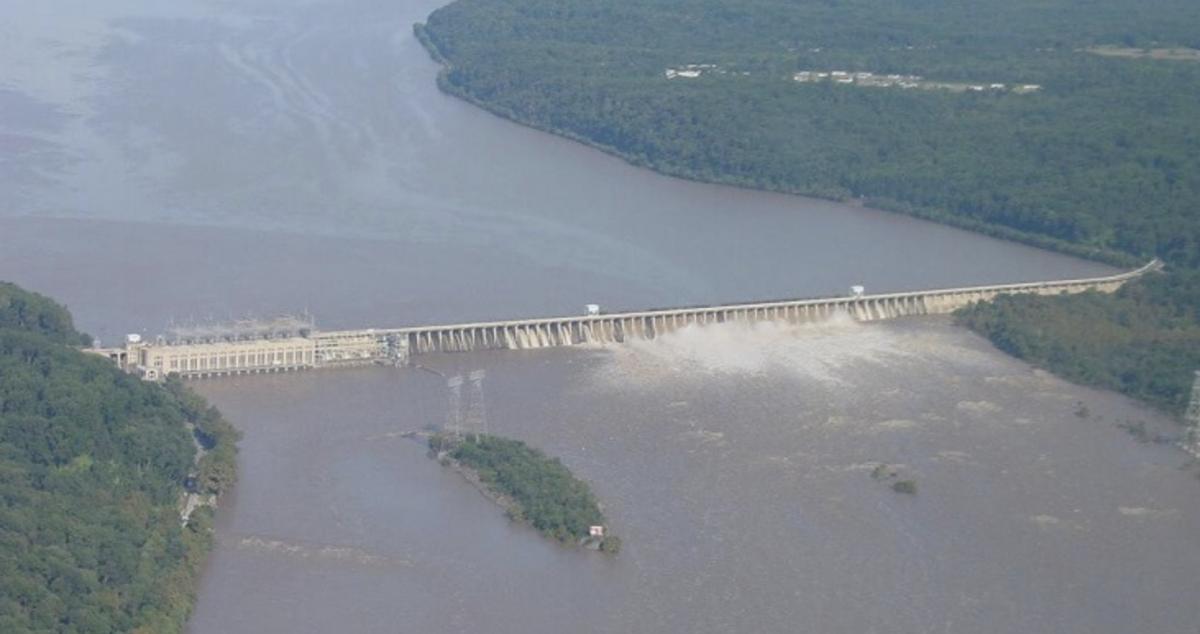Oyster aquaculture is a growing industry in the state of Maryland. Similar to watermen, these intrepid individuals and companies utilize the water column or bottom of the Bay to cultivate and harvest farmed oysters. The industry has achieved steady growth since the allowance for aquaculture leases in 2010. In turn, generating new jobs and economic multipliers.
One major contributor to pollution in the Bay and cause of subsequent harmful impact on its natural resources is the Conowingo Hydroelectric Dam (formerly owned by Exelon Generation Company, LLC, now Constellation Energy). Since beginning operations more than 90 years ago, the dam has blocked fish from traveling upstream to spawn and eels that carry the larvae of freshwater mussels. This has significantly reduced the millions of fish that once traveled up the Susquehanna River and impaired the filtration capability of freshwater mussel populations.
The dam’s reservoir, which once provided benefits by trapping sediments, is now full. And for the last 90 years, its operators have failed to maintain the reservoir or take responsibility for its maintenance. When there is overflow or the dam’s gates are opened, sediment is released, smothering underwater grasses and oyster beds. Nutrients attached to the sediment feed algae blooms, which create anoxic conditions and block sunlight. Furthermore, the artificial timing of the gate openings creates massive influxes of fresh water. The depressed salinity levels and their lingering effects hinder oyster growth and survival. As the farm in closest proximity to the dam (our Chester River site), we have witnessed these prolonged and artificial freshets. Debris piled up behind the dam is also sent downstream, which can damage gear used for recreation, commercial fishing, and oyster farming.
Despite Maryland’s commitments to restore the Bay’s health, in 2019, the Maryland Department of Environment agreed to largely absolve Exelon of any responsibility for the dam’s impacts on the Bay’s water quality. As a result of this deal, the Federal Energy Regulatory Commission decided to ignore a 2018 water quality certification from MDE. And grant a new 50-year license to operate, with insufficient action from Exelon. However, the 2018 certification (issued under the Clean Water Act) included (subsequently ignored) provisions that MDE deemed necessary to ensure water quality under the CWA.
In December, the U.S. Court of Appeals for the D.C. Circuit found that ignoring the 2018 certification violated the Clean Water Act and vacated (threw out) the license. This is a win for the Bay.
Somewhat unsurprisingly, a Constellation Energy spokesperson claimed that those who care about the Bay should not cheer this decision. This refutes recent findings from the U.S. Environmental Protection Agency: that the majority of the Bay states are not on track to meet the 2025 water quality restoration goals under the Chesapeake Bay Total Maximum Daily Load – a multi-state clean-up effort to restore the health of the Bay and its local streams, creeks, and rivers. A key-missing piece of those efforts is addressing the pollution which enters the Bay from the Conowingo Dam’s operations.
Oyster farmers and watermen, who experience the dam’s impacts almost every time there is significant rainfall in the region, are breathing a hopeful sigh of relief after the Court’s decision. Although Maryland and Exelon once touted the environmental benefits that might have been realized under their 2019 agreement, they likely would have amounted to little in terms of pollution reduction. And by decreasing instream flow in hot summer months, would have actually worsened conditions for some aquatic species. Compounding it all, the impacts felt today are primed to become even more severe with increasing frequencies and intensities of storm events as a result of climate change.
We must ensure that Constellation (a private utility profiting from a public resource) includes all appropriate water quality protections in their 50-year operating license. The new FERC license should uphold the 2018 certification, which would require Constellation to reduce nutrients and storm scour, and run the dam with operative flows for fish to survive below the dam. While the court’s decision is a win for the Bay, it is yet to be seen if the conditions of the original certification will impact the dam’s future operation. In the race against a thousand tiny cuts to the Bay’s health, this court decision represents triage for a major wound — it is still undecided if the resulting treatment will be sufficient to meet our collective public goals.
The writer is a partner at Orchard Point Oyster Co. and an Eastern Shore native. He currently serves on the boards of the Oyster Recovery Partnership, Maryland Sea Grant, Chesapeake Bay Foundation’s Chesapeake Oyster Alliance, and is treasurer of ShoreRivers. He is also a gubernatorial appointee to the Maryland Tidal Fish Advisory Commission and Maryland Aquaculture Coordinating Council.



Dan Watson says
Hope springs eternal…and here is an issue where individual watermen, CBF, the Delmarva Fisheries Association, aqua farmers, DNR, ShoreRivers, and any thinking Marylander are all on the same side.
Who was on the other side anyway? Oh, I know. It’s none other than MDE! Geeeze. “…in 2019, the Maryland Department of Environment agreed to largely absolve Exelon of any responsibility for the dam’s impacts on the Bay’s water quality.” Fingers crossed that the Moore Administration focuses on the root of so many problems.
DW